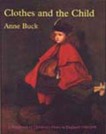Sort by: Author | Title | Publication Year
BOOKS
Clergy Sexual Abuse Litigation: Survivors Seeking JusticeJennifer M. Balboni Why did victims of Catholic clergy sexual abuse wait so long to come forward, and what did their recourse to the courts finally achieve?
Jennifer Balboni explores the experiences of clergy sex abuse survivors who sought justice through the court system, highlighting the promise and shortfalls of civil litigation in providing justice. Balboni draws on cases across the country such as the More > |  |
Clinton’s War on Terror: Redefining US Security Strategy, 1993-2001James D. Boys In the aftermath of the catastrophic attacks of September 11, 2001, President Bill Clinton's time in office was portrayed as one in which vital opportunities to confront growing threats to US security were missed. Firmly challenging this characterization, James Boys explores the long-misunderstood approach adopted by the Clinton administration as it sought to define an effective response to More > |  |
Clothes and the Child: A Handbook of Children's Dress in England, 1500-1900Anne Buck Through the centuries children's clothes reflect the concerns of parents and shifts in fashions. The needs of the child, changing ideas on health and upbringing, evolving social attitudes, and new technology all find expression in their dress. Its development, and its changing relationship with contemporary adult dress, offer a revealing picture of the time, as each garment bears the imprint More > |  |
Coalition Politics and the Iraq War: Determinants of ChoiceDaniel F. Baltrusaitis Why do states join ad hoc military coalitions? What motivated South Korea to contribute significantly to the Iraq War "coalition of the willing," while such steadfast allies as Turkey and Germany resisted US pressure to become burden-sharing partners? Drawing on his extensive examination of South Korean, German, and Turkish politics in the approach to and during the Iraq War, Daniel More > |  |
Coalitions and Political Movements: The Lessons of the Nuclear FreezeThomas R. Rochon and David S. Meyer, editors How advanced is our knowledge about the dynamics of political and social activism? What lessons can be learned by studying the rise and fall of particular political and social movements? What insights can be gained by applying the different frameworks and methodologies of political science, sociology, and communications? This original work employs multidisciplinary perspectives to better More > | |
Cold Combat: Mountain Warfare in Italy and the Battle of San Pietro, 1943James Jay Carafano Italy. December 1943. Allied troops from some twelve nations are amassed at the foot of the Apennine Mountains in a narrow corridor that they would recall as "Death Valley." Soon they would fight a grueling battle named after a small village tucked there, San Pietro Infine.
In his day-to-day account of the often overlooked, yet significant, San Pietro battle, James Carafano paints a More > |  |
Collapsed States: The Disintegration and Restoration of Legitimate AuthorityI. William Zartman, editor The collapse of states—a phenomenon that goes far beyond rebellion or the change of regimes to involve the literal implosion of structures of authority and legitimacy—has until now received little scholarly attention, despite the fact that a number of states have actually ceased to exist as entities in the aftermath of the collapse of the dominant international system.
The authors of More > | |
Collective Security in a Changing WorldThomas G. Weiss, editor This volume analyzes institutional mechanisms in the United Nations and in regional organizations that exist to deal with threats to the peace, and also examines what the U.S. response should be to the evolving opportunity to strengthen collective security. The numerous theoretical and practical problems of guaranteeing international security in the 1990s provide the substance for analysis by More > | |
Collective Violence in IndonesiaAshutosh Varshney, editor Since the end of Suharto's so-called New Order (1966-1998) in Indonesia and the eruption of vicious group violence, a number of questions have engaged the minds of scholars and other observers. How widespread is the group violence? What forms—ethnic, religious, economic—has it primarily taken? Have the clashes of the post-Suharto years been significantly more widespread, or worse, More > |  |
Combating Antisemitism in Germany and Poland: Strategies Since 1990Thomas Just In both Germany and Poland—primary locations of the Holocaust—the legacy of antisemitism remains a major obstacle to reconciliation with the past. Thomas Just asks: How does antisemitism typically manifest in these countries? What counterstrategies are being employed? And with what effect? Addressing these questions, Just contributes to a deeper understanding of the disturbing More > |  |



